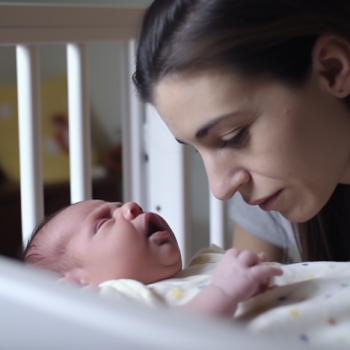Sleep training a toddler can be a daunting task for any parent. The duration of the process can vary depending on several factors such as the child's age, temperament, and sleep habits. Typically, it takes around 2-4 weeks of consistent effort to establish a healthy sleep routine for your toddler. However, it's important to note that every child is unique, and some may take longer or shorter than others. It's crucial to have a well-planned approach and stick to it with patience and consistency. Sleep training can be challenging and tiring, but it's worthwhile in the long run, as it helps your child develop good sleep habits that will benefit them throughout their life.
Tag: sleep training schedule
The Ultimate Guide to Determining the Best Time to Start Sleep Training a Toddler
Sleep training a toddler can be a daunting task, yet it is an essential part of parenting. Choosing the right time to start sleep training can make all the difference in your success. The ideal time to start sleep training your toddler is between 4 and 6 months old. However, if you missed that window, don't worry. Starting at any age can be beneficial for your child's sleep health and can improve their overall behavior. It's crucial to understand that consistency is key, and you need to create a routine that works for both you and your child. Remember, sleep training is not a one size fits all approach, and what works for one child may not work for another. Keep in mind that patience is essential, and with time and persistence, your toddler will learn healthy sleep habits that will last a lifetime.
Sleep Training and Breastfeeding: Can the Two Coexist?
Are you a breastfeeding mother wondering if you can sleep train your baby? The answer is yes, you can! Sleep training and breastfeeding can go hand in hand if done correctly. It's important to establish a feeding schedule and ensure your baby is getting enough milk during the day before starting sleep training. Gradual methods like the pick-up-put-down technique or the Ferber method can work well for breastfeeding moms. It may take longer to see results, but with consistency and patience, your baby will learn to self-soothe and sleep through the night while continuing to receive the benefits of breastfeeding. Remember, every baby is different, and it's important to listen to your instincts and consult with your healthcare provider before starting any sleep training method.
A Beginner’s Guide to Sleep Training for Infants: Benefits and Techniques Explained
Sleep training for infants is a process of teaching babies how to sleep independently through the night. It involves gradually reducing the presence and intervention of parents during bedtime routines. Sleep training may include methods such as the Ferber method, the cry it out method, or the chair method, and involves establishing a consistent sleep schedule and routine. While sleep training can be controversial, it can be a helpful solution for parents who are struggling with sleep deprivation and are looking for a way to help their baby get the rest they need. It is important to note that sleep training should only be done when the baby is developmentally ready and should always be done under the guidance of a pediatrician.


